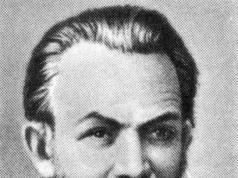You can become a donor Whole donated blood is not used. Each dose of blood is divided into components, the main of which are erythrocytes, plasma and platelets. The patient receives exactly the component that he needs. Thus, the blood of one donor can save the life of several patients.
">blood if you meet the following conditions:- you have the citizenship of the Russian Federation or a residence permit in Russia for a period of at least one year;
- you are over 18 years old (or you acquired full legal capacity before reaching the age of 18 in accordance with the legislation of the Russian Federation);
- you don't have medical You can see the full list of contraindications in the order of the Ministry of Health of the Russian Federation dated September 14, 2001 No. 364 "On approval of the procedure for medical examination of a blood donor and its components."> Contraindications to blood donation - both temporary and absolute.
You can become a platelet donor if:
- you are a personnel donor of those blood transfusion departments where platelets are harvested;
- the content of platelets in the blood during the examination before donation is more than 210x109/l;
- the need for a platelet concentrate of a certain group and Rh-affiliation was confirmed.
2. What do you need to become a donor in Moscow?
To become a donor, sign up for a donation. This can be done at the O.K. Gavrilov or at the nearest blood service institution of the Moscow Health Department.
In the first case, sign up for blood donation in one of the following ways:
Arrange a visit by phone.
The registry needs:
- fill out a questionnaire;
- register a donor in the database of a single donor center (by presenting an identity document);
- get a donor card.
If you are donating blood for the first or third time in a year, or if you have donated blood in another region, you will need to undergo a medical examination. A medical examination is not necessary if you have already donated blood in Moscow, and also if you donate blood no more than twice a year.
If you were a donor at another institution, it is recommended that you obtain a certificate of the number of donations of blood and (or) its components in the form 448-05 / y from the previous place of donation. This certificate will be needed to register as a donor in Moscow.
3. How to pass the initial medical examination?
Step 1. Donate blood for analysis. After registration, a potential donor is sent to the laboratory for an initial clinical and laboratory blood test using an express method to determine the blood group, the main indicators of peripheral blood, Rh and Kell factors.
Step 2 Get checked out by a transfusiologist. The survey determines:
- rhythm and pulse rate (from 50 to 100 beats per minute);
- blood pressure (systolic pressure in the range of 90–160 mm Hg, diastolic pressure - from 60 to 100 mm Hg);
- weight and, if necessary, height;
- body temperature (no more than 37 degrees Celsius);
- condition of the skin, mucous membranes, veins;
- heart and lung conditions.
The transfusiologist will also assess the psychoneurological status of the donor, study the collected information of the donor:
- about living conditions;
- past illnesses and operations;
- injuries;
- pregnancies;
- chronic pathology;
- allergic reactions;
- heredity.
Step 3 Get a doctor's opinion. After the examination, the transfusiologist will decide whether or not to allow donation, determine the type of donation, as well as the amount of blood or its components taken. If in doubt, the donor will be sent for a consultation to the clinic at the place of attachment, if a positive decision is made, to the department for collecting blood and its components.
4. How often can I donate blood and how much?
The maximum allowable number of blood donations for women is 4 times a year, for men - 5 times a year.
Intervals between:
- blood donations - 60 days;
- donation of blood components (plasma, platelets) - 14 days, per year no more than 20 donations of plasma and no more than 10 donations of platelets;
- between erythrocyte donations - from 60 to 180 days (depending on the volume of blood cells taken).
5. What is involved in donating blood?
Blood donation can be free of charge, for a fee and with social support measures in the form of a cash payment immediately after donation or upon completion of a certain number of donations during the donor year.
Donors after donation free of charge or with the receipt of social support measures will receive compensation for food - 1,128 rubles.
Donations made free of charge are taken into account when presented for awarding with the badges “Honorary Donor of Moscow” and “Honorary Donor of Russia”.
When making paid donations, the amounts of payments will be (compensation for food is not paid):
- for donations of whole blood, subject to a rare phenotype of erythrocytes - 1800 rubles;
- for plasma donations - 3372 rubles;
- for platelet donations - 7860 rubles;
- for donations of erythrocytes (400 ml) - 5616 rubles.
The amounts of payments for donation with the receipt of social support measures:
- for whole blood donations - 5208 (4080+1128) rubles or 24000 rubles deferred for 4 donations during the donor year (+1128 rubles after each donation);
- for plasma donations - 4728 (3600+1128) rubles;
- for platelet donations - 6888 (5760+1128) rubles or 62,400 rubles for 10 donations during the donor year (+1128 rubles after each donation);
- for donations of erythrocytes (400 ml) - 7128 (6000+1128) rubles or 19200 rubles for 2 donations during the donor year (+1128 rubles after each donation).
Donors are also provided with 2 days off at the place of work with the preservation of wages.
5 days after the donation, upon your application, during a personal visit, you can be given the results of a blood sample study: blood type, Rh factor and Rh factor phenotype, and so on.
6. Who is a staff donor?
A career or active donor is a person who donated blood or its components three times during the year (365 days from the date of the last donation) and agreed to donate blood at any time for a specific blood transfusion station. As a rule, a personnel donor donates blood or its components more often than 3 times a year, and also undergoes a medical examination 2 times a year and provides certificates of his health at the Blood Service institution.
The staff of the blood transfusion station to which he is attached have the contact information of a personnel donor, and they can invite him to donate at any time if they need components of his blood.
A personnel donor can donate blood free of charge (with monetary compensation for food, social guarantees and benefits) or donate blood and its components for a monetary reward.
7. How to become a staff donor?
The question of whether you are ready to become a personnel donor of a particular SEC is asked by the station doctor. Your consent means you are ready to donate blood for this SBC at any time. After that, you should be issued a medical card of an active donor.
To obtain a card, you will need documents from the clinic at the place of attachment:
- an extract from the outpatient card for the entire period of observation by years, indicating the date of establishment of the card;
- conclusion of an infectious disease specialist on contact with infectious patients over the past 6 months;
- electrocardiogram (ECG) with interpretation;
- urinalysis results;
- fluorography result with a number;
- conclusion of a gynecologist (for women).
All examinations must be on separate forms, certified by the seal and stamp of the clinic, with the date and signature of the doctor.
If you donated blood in another region, in order to obtain an active donor's medical card, you must submit a certificate of the number of donations of blood and (or) its components in the form No. 448-05/y from the previous place of donation.
8. What are the requirements for staff donors?
In addition to agreeing to donate blood at any time, active blood donors must regularly provide data about their health:
- once a year - data from laboratory and clinical analysis of urine, fluoroscopic (or fluorographic) examination of the chest organs, electrocardiography;
- for women - once a year a certificate of gynecological status on the day the certificate was issued (past illnesses, surgical interventions, childbirth, absence of pregnancy);
- every six months - a medical certificate from the clinic at the place of attachment, indicating the diseases transferred over the past six months;
Donation
The donation of blood and its components is a freely expressed voluntary act. It is very much needed every day, and every donor will definitely save someone's life.
Since blood is an organic material, it cannot be replaced or produced artificially. Man is the only source of blood.
It is never used in its entirety. Each dose is divided into components. The patient is given exactly the part he needs. Therefore, one donor can save the lives of several people.
Preparations that are made from blood are necessary for complex operations, childbirth, the treatment of patients with bleeding, severe injuries, leukemia, anemia, liver disease, cancer, and in many other cases.
In view of the fact that this substance is of high quality only for a short period of time, in order to provide it to medical institutions in sufficient quantities necessary to save the lives of people who need them, volunteers are always needed.
The Central Blood Transfusion Station in Moscow collects blood from volunteers and supplies it to hospitals.
Central blood transfusion station in Moscow
Donation is one of the components of a healthy lifestyle. The results of many years of research have shown that people who donate blood regularly do not experience any deviations in their health status, both in Russia and abroad. After each blood donation, the human immune system is not only not disturbed, on the contrary, the metabolism in the body improves.
Regular donation helps to reduce the likelihood of myocardial infarction by 5 times and increase human life expectancy.
In addition, the donor is always provided with regular monitoring of his health. Before each blood donation, they undergo a physical examination and through a thorough conversation with a health worker.
All information received about the donor's health is strictly confidential.
If you decide to help another person, it should be safe for you in the first place. First of all, you need to analyze your health status, recent lifestyle and possible risk factors.
Remember that the patient needs healthy blood, and the donor is responsible for its safety.
Another 16 departments of large city hospitals are invited to become donors in Moscow.
If your organization, educational institution or institution has more than 20 people who wish to become volunteers, just call the department for the procurement of donor blood and its components in field conditions of the Blood Transfusion Station of the Moscow Department of Health at 945-76-02 or 327-53 -25 and wait for a team of specialists with equipment to come to you.
Donor Requirements
Necessary:
· Be a citizen of the Russian Federation
Be over 18 years of age
Weigh at least 50 kg
Be healthy and rested
A person cannot become a donor if:
Carrier of HIV infection or suspected of having it
A carrier of the hepatitis virus, that is, infectious jaundice, has been ill with it or suspects the presence of the hepatitis virus
Has taken drugs
· Has a promiscuous sex life that poses a risk to health.
Women can donate a maximum of 4 blood donations per year, men - 5.
Become a donor and save the lives of many people!
Piminova Natalia
Thanks a lot! It was the first time - I liked everything very much: calm, friendly, without queues.
Today I tried to donate blood for the first time. I “signed up” in advance at the call at the bottom of this page - “Let's donate blood together!”, “Expected date of blood donation”. Why the choice of date and time is made I do not understand. On the spot, he began by trying to understand - in which container are the new shoe covers, and where are the used ones? You haven’t thought of making inscriptions yet, choose any. Then you need to find a place where to sit down and put them on, there are not many places for people. To fill out the questionnaires, you need to find a sample, it is hidden in a book on a stand on the table, I found it after I filled it out myself, along the way I read a lot of unnecessary texts on the walls. As a result, an hour passed the blood test and ran to work. At least I knew my blood type. At the first change, you will be on a par with the rest in the queue, and it doesn’t matter that you don’t pay, but I didn’t try to make a fuss. So stock up on time, patience and queue up until the opening. The organization is in the worst Soviet traditions, but the staff is decent.
Catherine
Donated blood today, the impressions were only positive. By 8 in the morning there is already a small queue, many want to come early. First you fill out a questionnaire and give it to the receptionist, then you donate blood from your finger (the nurse checks the blood type, hemoglobin, etc.). then to the therapist (complaints, if any, pressure, weight, etc.), after which you go to the buffet to drink sweet tea with cookies. And finally, the donation procedure itself, it lasted less than 10 minutes for me) And at the end, you get all the necessary certificates at the reception. All staff are polite and helpful
bag Anna
disgusting attitude of the nurse on duty. I haven't been able to get further yet, and apparently I won't try.
Alexander Ma
Alexander Ma
I rent here for a year. All good. All are polite. Tea is sweet. The beds are comfortable. Since September, they are asking to sign up. Well, I'm recording.
Anastasia
we’ve been renting with the martyr for a year now on this spk, dolny, no complaints, I want to notice the blatant lie of the people who unsubscribed above: you don’t need to come to record, they record for a month (maximum for 1.5). they answer normally at the reception, the staff is generally friendly, I remember my first time, there was a weakness, so the doctor, who sat and delved into the papers, accompanied me, which was very kind of him * at that time, there were no people who wanted to donate blood (and therefore helped)
1. The wrong address is indicated on the site - in fact, not Leninsky Prospect, 8, but Leninsky Prospect, 10k1. 2. Very unfriendly staff both on the phone and the receptionists themselves. When asked why this institution requires a set of certificates from doctors from the clinic (I have been donating blood for more than a year and have never needed anything - the law is different for everyone?), They rudely answered "Ask this question to a transfusiologist!". Z. Attention to the real state of health is minimal. Everyone writes the same indicators of pressure and pulse. 4. Signing up for blood donation in a few weeks, while there is still a decent line of donors, and they didn’t even bother to put chairs in front of the blood donation office, everyone is crowding in the corridor. The queue takes about an hour!! Despite the fact that there are empty chairs for blood donation. In general, the impressions are sharply negative.
Golyak Angela
I have been donating blood here for 3 years now. And every time I am glad that I ended up in this particular department, because initially I came to Begovaya by mistake, there is a huge live queue, dissatisfied, angry people and the principle of "who had time." Then, realizing the mistake, I rushed to Pirogov and how I was surprised by the difference between the departments, everything is there by appointment, there are not many people, for all 3 years the longest queue is probably 5 people)). Honey. the staff is amazing, all kind, polite! Thank you very much!!! Separate greetings to the girls from the reception) The point itself is clean, bright, renovated. Every time I look forward to the day of delivery, just like a holiday))) Everyone who is just going, do not be afraid, you need to try at least once and get very involved, the main thing is that there are no contraindications!








